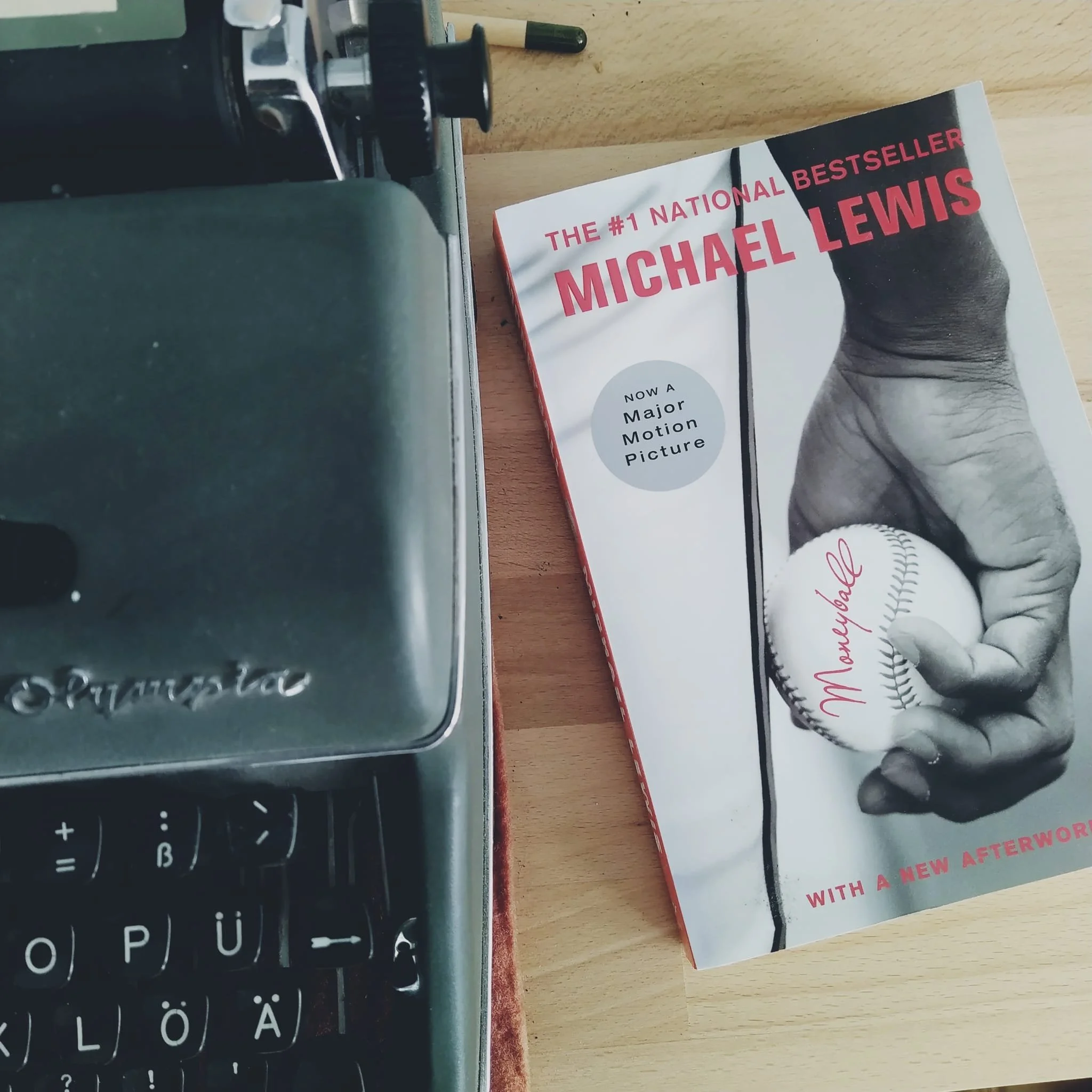The word character – as long time readers will remember – did not mean dramatis personae. The word comes from the Greek meaning an engraved mark. As in to draw a character on a piece of paper. Put some together and it becomes a word. The term also meant to mark on the body, or the soul. It was not until a few hundred years ago that the term became applicable to a person in a story. Hamlet was not a character – the meaning changed more recent than Shakespeare’s death.
Read MoreTaking the information in your mind and putting it on the written page is not an easy process. Even people who have a passion for writing – that’s most writers – battle with it. That shouldn’t hold you back from writing a book because there are other ways.
Read MoreTo cover a difficult topic in a way that’s as engaging as Moneyball, there must be a question that pulls us into the book. The chapters, or sequences, must develop from each other. Plunging head first into sabermetrics would have left most readers striking out part way through the first chapter. Instead, Lewis finds a way to open with the narrative to hook us, then deliver the ideas.
Read MoreMoneyball – both the book and the film – is a great example of a story that grips your attention even though you know the end. If it was a straight sports story then the heartbreaking loss at the end of the season would be the climax. There would be different beats, a different focus, and more attention following the players. Instead, the climax of the story is not on the field.
Read MoreWriting a book is a huge undertaking. And when the writing is done, there is a massive relief.
The book is not finished.
I have seen friends and clients get too excited here and mess up the launch of their book. They had an amazing book, a real opportunity to make an impact, and then they rushed the end.
Read MoreStructure is essential to guiding your reader through your story. It’s giving information when it is needed. It’s shaping perspective on the events in the book. Structure is the scaffolding that holds up other elements of writing. It also gives you plenty of room to play. When you’re struggling with how things happen in the story, in the order they happen, take a look at what theme and value you are bringing to these events.
Read MoreCollaborating with a professional ghostwriter is not just about word count. There are other values a ghostwriter brings to the partnership. Ideas. Narrative structure. A way to recognise elements for your story that you might have overlooked.
Read MoreRiddles require you to make up the context of the scene and find what fits. Stories build that piece by piece. There’s no cathartic emotional revelation in having the context given like this. There’s no story. There’s no value placed on this information. There’s no tension other than trying to solve the riddle. Stories require that the information we need – hopefully – comes right when we need it in order to make sense of what has happened.
Read More







